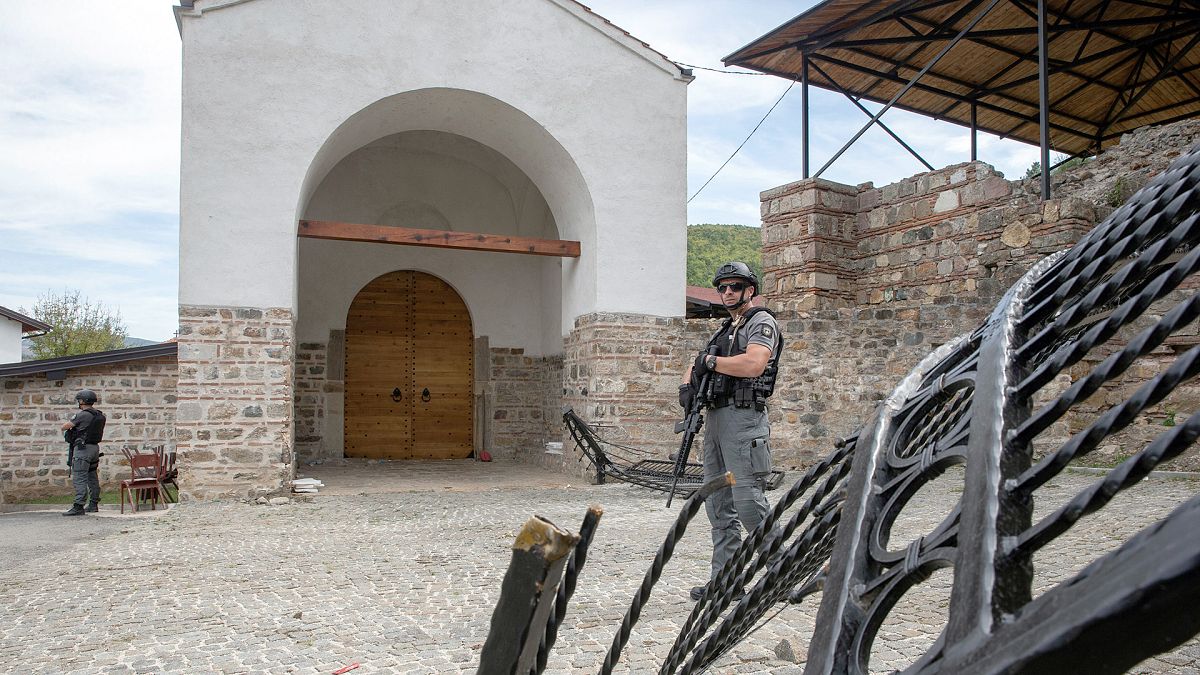In September of last year, an intense daylong gun battle erupted in Kosovo after armed Serb gunmen attacked the police and barricaded themselves in an Orthodox monastery. The incident resulted in three deaths and left the region in shock. As a result, 45 people have been charged in connection with the attack, with three Serbs pleading not guilty in a trial that began recently.
The assault, carried out by around 30 Serb gunmen, resulted in the death of a Kosovar Albanian police officer before the attackers barricaded themselves in the monastery. The incident triggered a lengthy gun battle, marking one of the worst clashes since Kosovo’s declaration of independence from Serbia in 2008. Kosovo Prime Minister Albin Kurti has accused Belgrade of involvement, claiming it was part of a larger plan to annex part of Kosovo. He called on the international community to pressure Belgrade to hand over the remaining gunmen, who fled back to Serbia after the standoff.
Among those charged is Milan Radoičić, a businessman and politician with ties to Serbia’s ruling party. Despite Radoičić’s denial of involvement, he admitted to having connections to the group involved in the attack. The prosecutor stated that the defendants, under Radoičić’s command, were attempting to help certain Serb-majority municipalities in Kosovo break away and join Serbia. The trial, held under tight security, involves charges of constitutional violations, terrorism, funding terrorism, and money laundering.
In response to the incident, both EU and US officials have urged Belgrade to cooperate in bringing the perpetrators to justice. Agreements reached between Kosovo and Serbia in the previous year aimed at maintaining peace in the region, including the establishment of a Serb municipality community in specific areas. The trial is considered a critical step towards justice for the victims of the attack, with the gunmen potentially facing a life sentence if convicted.
The involvement of armed gunmen from Serbia has raised concerns about the stability and security of Kosovo, particularly in the Serb-majority areas near the border. The incident has reignited tensions between the two regions, with accusations of annexation and unlawful activities being exchanged. The trial of the 45 individuals charged with various offenses related to the attack will shed light on the motivations and responsibilities behind the violent incident.
The trial, which began recently in Kosovo, has garnered international attention due to the implications for peace and stability in the region. The defendants, including high-profile figures like Milan Radoičić, face serious charges that could result in significant consequences if found guilty. The demands for justice from both EU and US officials underscore the importance of holding accountable those responsible for the violence that occurred in September. As the trial progresses, it will be crucial to monitor developments in order to ensure a fair and just resolution to this tragic event.











